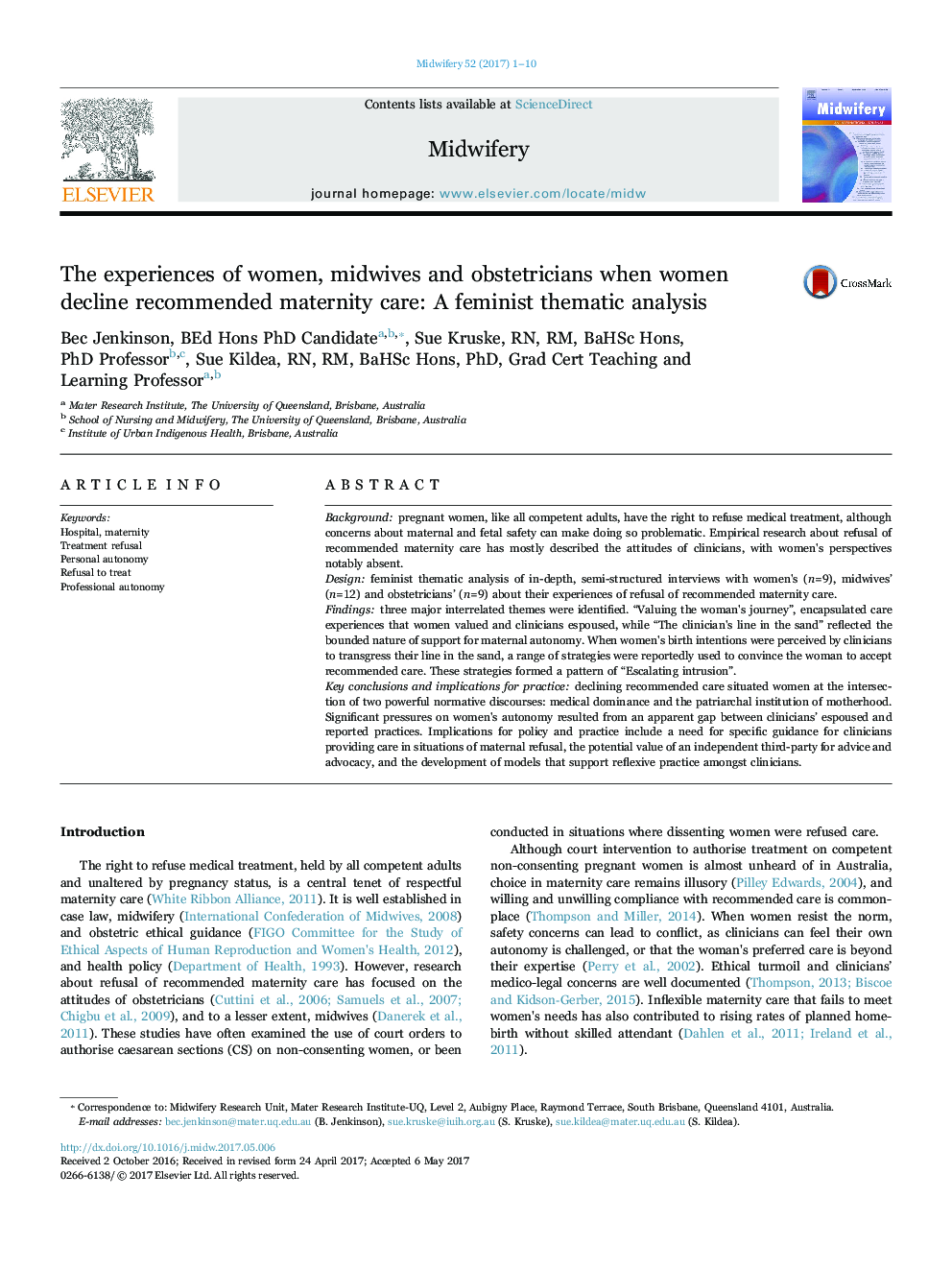| Article ID | Journal | Published Year | Pages | File Type |
|---|---|---|---|---|
| 5122299 | Midwifery | 2017 | 10 Pages |
â¢Valuing each woman's journey was key to respecting right to refuse aspects of care.â¢Clinicians' espoused respect for women's autonomy, but women felt coerced.â¢Clinicians regarded “risky” birth choices as transgressing norms of motherhood.â¢Clinicians responses to refusals were variable and difficult for women to predict.
Backgroundpregnant women, like all competent adults, have the right to refuse medical treatment, although concerns about maternal and fetal safety can make doing so problematic. Empirical research about refusal of recommended maternity care has mostly described the attitudes of clinicians, with women's perspectives notably absent.Designfeminist thematic analysis of in-depth, semi-structured interviews with women's (n=9), midwives' (n=12) and obstetricians' (n=9) about their experiences of refusal of recommended maternity care.Findingsthree major interrelated themes were identified. “Valuing the woman's journey”, encapsulated care experiences that women valued and clinicians espoused, while “The clinician's line in the sand” reflected the bounded nature of support for maternal autonomy. When women's birth intentions were perceived by clinicians to transgress their line in the sand, a range of strategies were reportedly used to convince the woman to accept recommended care. These strategies formed a pattern of “Escalating intrusion”.Key conclusions and implications for practicedeclining recommended care situated women at the intersection of two powerful normative discourses: medical dominance and the patriarchal institution of motherhood. Significant pressures on women's autonomy resulted from an apparent gap between clinicians' espoused and reported practices. Implications for policy and practice include a need for specific guidance for clinicians providing care in situations of maternal refusal, the potential value of an independent third-party for advice and advocacy, and the development of models that support reflexive practice amongst clinicians.
